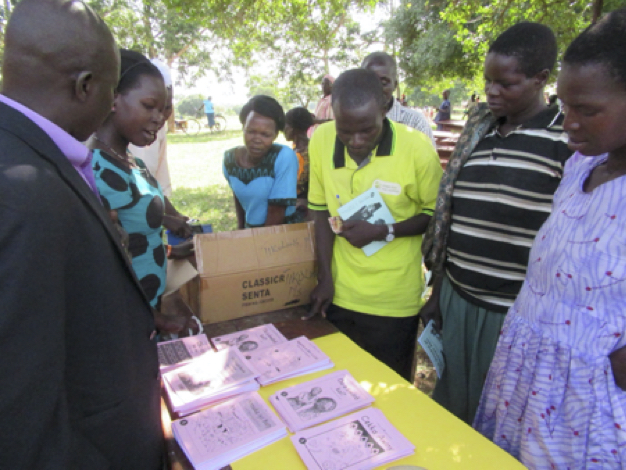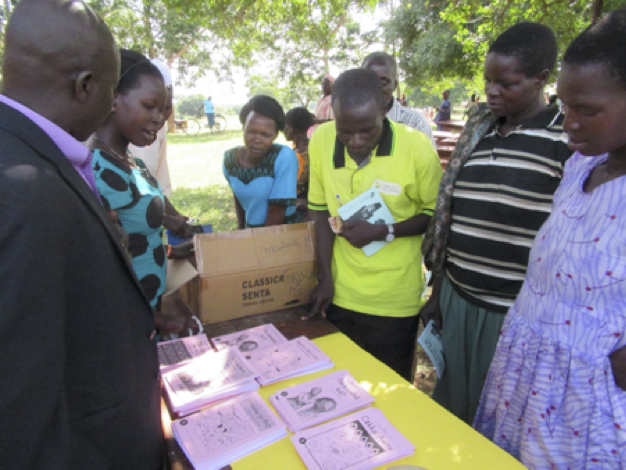Early literacy and Leblango: A fascinating learning journey for Uganda’s Mango Tree Literacy Lab

 Early literacy is universally acknowledged to be critical when it comes to the education and development of our children, and their life-long learning.
Early literacy is universally acknowledged to be critical when it comes to the education and development of our children, and their life-long learning.
But even in countries where the home language is not a Western language, early literacy teaching is not in that language. This is unfortunate as research shows that children learn to read more effectively if they learn in their mother tongue.
Since its inception in 2010, a non-governmental organization (NGO) based in Lira, Uganda, the Mango Tree Literacy Lab (MTLL), has worked hard to address this, and to realize their belief that African children have the right to read, write and engage with ideas in a language they know and understand.
Specifically, MTLL is working hard to support early primary literacy in the Lango Sub-region of the country’s north, with a focus on the Leblango language. While not at the center of the Lord’s Resistance Army insurgency in northern Uganda, the Lango Sub-region was profoundly impacted by the conflict for nearly twenty years.
While previous interventions from MTLL have seen the integration of more local language storybooks into early primary instruction and curricula, more recently they’ve achieved success and the opportunity to learn and grow, through the distribution of their openly licensed literacy materials, and the establishment of an ‘experimental’ local market for storybook sales. MTLL has always produced its books at very low cost, using black and white illustrations and inexpensive printing methods. Its idea was to sell the books very cheaply to parents and others, to encourage reading and learning in the home.
The NGO has reported on some interesting findings along the way.
If you’re interested in learning more, read the fascinating report here: The use and dissemination of openly licensed storybooks and learning materials by Mango Tree, Literacy Lab, Lira, Uganda.
The MTLL team also realized that adult illiteracy, and doubt about the value of books, is a considerable challenge to the culture of literacy they want to engender. This has impacted the way they introduce their books to the community, how they sell their books to the parents of learners, and who they partner with to do so. Initially MTLL thought of traditional ‘sales people’ as the obvious vendors, but ultimately they had a lot more success when they asked teachers – people both invested in the language, and learning in general – to sell their storybooks.
And, while a lot of learning takes place in the school environment, these books are created so that learning can continue at home. To this end, the Parent Literacy Guide was created to accompany the books, so that parents can confidently become part of their children’s learning journey.
MTLL did not have all this knowledge on hand at the outset, but they’ve reflected on each step of the journey and made changes to plans when they’ve realised something is not working as well as it could.
Even now, with the COVID-19 lockdown restrictions that have been put in place, MTLL has maintained some momentum by partnering with a local radio station to not only have the Leblango stories read over the airwaves, but also to create a Q&A space where education and literacy questions posed by community members can be answered.
Post-Covid, MTLL has envisioned that radio will play a much bigger role in how they bring enthusiasm for and commitment to reading and writing in daily life. We look forward to seeing how all this plays out.
In the meantime, the complete report, as authored by the Program Director Craig Esbeck, can be found on our site here; and the Mango Tree website, along with all their storybooks, textbooks and literacy guides, can be found here.




